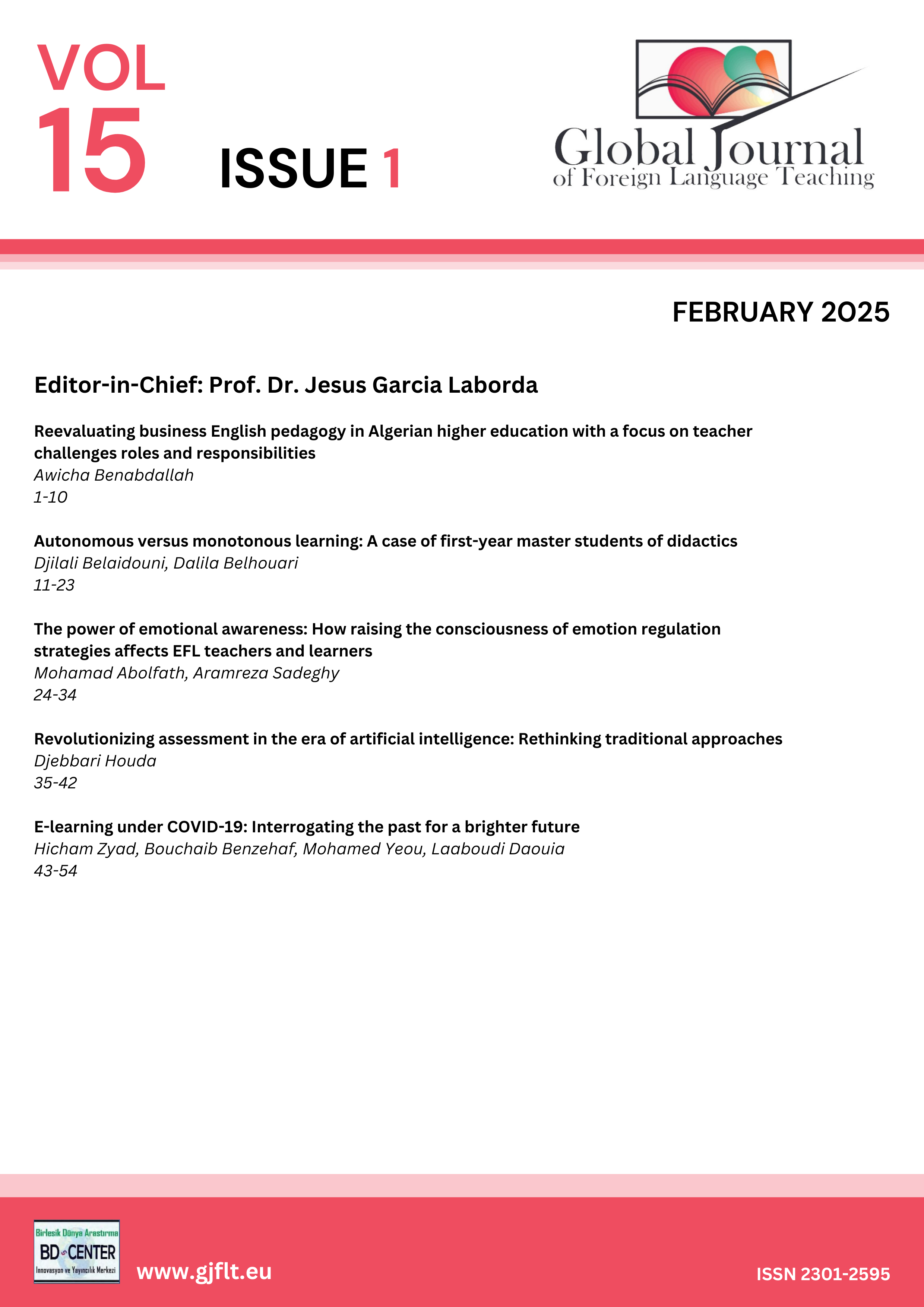Revolutionizing assessment in the era of artificial intelligence: Rethinking traditional approaches
Main Article Content
Abstract
In an era characterized by rapid advancements in artificial intelligence (AI), traditional assessment methods face both unprecedented challenges and new opportunities. This study explores the paradigm shift in assessment practices prompted by AI’s growing role in education, professional evaluations, and decision-making processes. The research identifies a significant gap in current assessment frameworks, emphasizing the need for a balanced integration of AI technologies without compromising essential human qualities such as judgment, empathy, and contextual understanding. The objective of this study is to critically examine how AI-driven assessment tools can enhance efficiency, objectivity, and personalized feedback, while also addressing concerns related to ethics, bias, and the evolving responsibilities of human evaluators. Through a comprehensive analysis, this research proposes a holistic framework that combines AI’s capabilities with human insight to shape the future of assessment. Key findings suggest that while AI offers considerable benefits, a thoughtful, integrated approach is crucial to ensure fair, equitable, and effective evaluations. The study’s implications highlight the need for ongoing dialogue and adaptation to ensure that the future of assessment remains both innovative and human-centered.
Keywords: Artificial intelligence; assessment; revolutionary shift; 542traditional approach
Downloads
Article Details

This work is licensed under a Creative Commons Attribution-NonCommercial-NoDerivatives 4.0 International License.
Authors who publish with this journal agree to the following terms:- Authors retain copyright and grant the journal right of first publication with the work simultaneously licensed under a Creative Commons Attribution License that allows others to share the work with an acknowledgement of the work's authorship and initial publication in this journal.
- Authors are able to enter into separate, additional contractual arrangements for the non-exclusive distribution of the journal's published version of the work (e.g., post it to an institutional repository or publish it in a book), with an acknowledgement of its initial publication in this journal.
- Authors are permitted and encouraged to post their work online (e.g., in institutional repositories or on their website) prior to and during the submission process, as it can lead to productive exchanges, as well as earlier and greater citation of published work (SeeThe Effect of Open Access).
